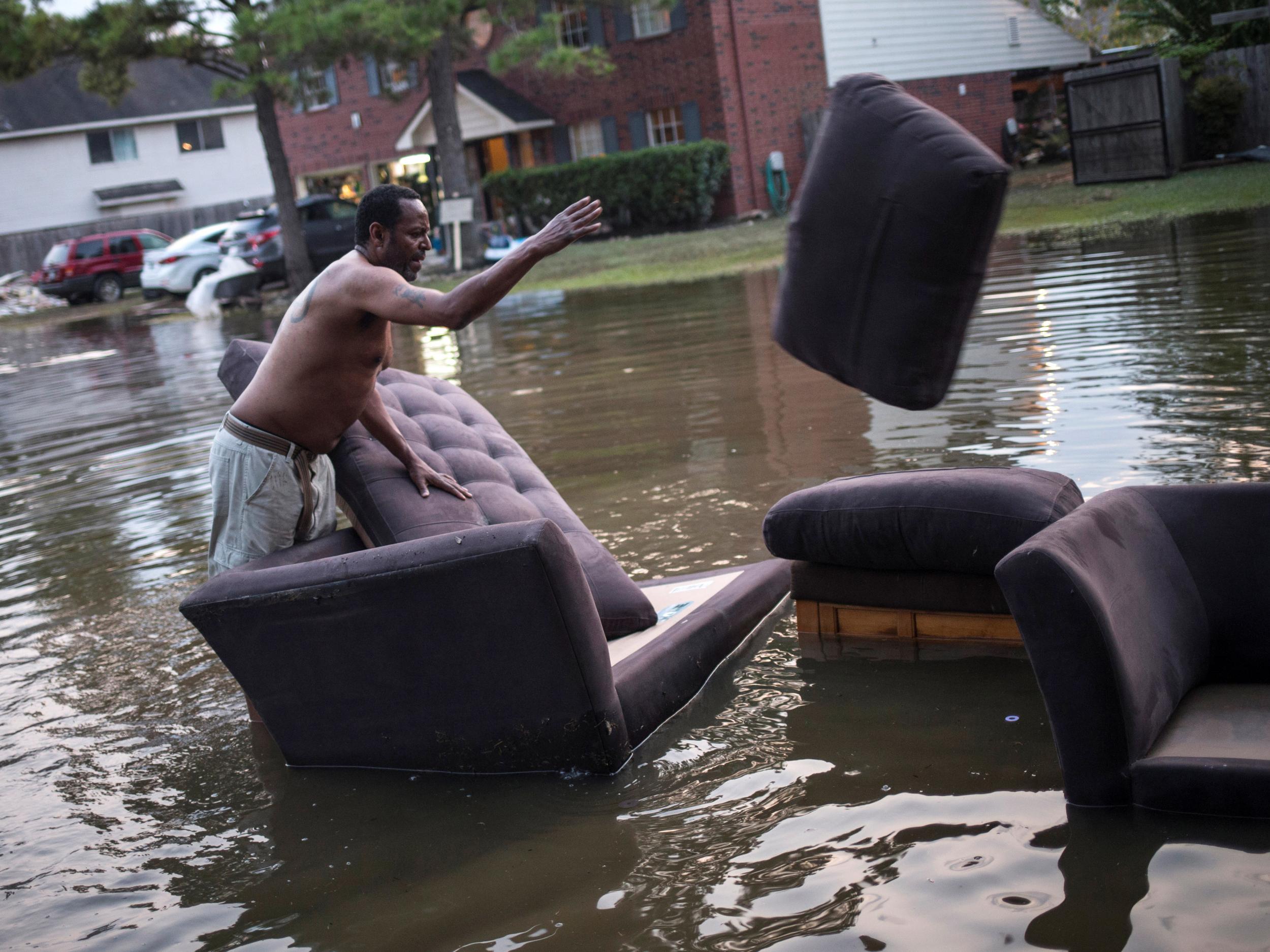The Independent's journalism is supported by our readers. When you purchase through links on our site, we may earn commission.
Donald Trump's Daca decision, not Hurricane Harvey, could tear Houston apart
As many as 80,000 'Dreamers' in the greater Houston area alone could be deported to countries where they have no relationships, where they do not even speak the language. There is no compassion in this decision, no matter what the Administration says

As the floodwaters rose in my west Houston neighborhood after Hurricane Harvey landed, my husband and many of our neighbours pulled boats through waist-high water, knocked on doors and plucked people from their submerged houses. They rescued elderly couples, young roommates, families who do not speak English. There was no checking of IDs, no debate on whether a life was worth saving.
All across the city, as catastrophic flooding threatened to drown us, regular people risked their lives to help others. Alonso Guillen, a radio host and DJ who lived in Lufkin, Texas, two hours from Houston, brought a boat and a group of friends here to join in those efforts. He was on that boat, saving people he had never met before, when it capsized last Wednesday and he drowned. Guillen died a hero, if not an American citizen. He was a "Dreamer", a beneficiary of the Deferred Action for Childhood Arrivals (Daca) programme, and like the nearly 141,000 other Dreamers in Texas, he followed the requirements of the program – to stay in school or be gainfully employed – and had never been convicted of a crime. More than that, Texas was his home.
Around the time Guillen was buried in Lufkin, Attorney General Jeff Sessions announced President Trump’s decision to cancel the Daca programme, saying that “enforcing the law saves lives, protects communities and taxpayers, and prevents human suffering”. Instead, what the announcement shows is how suffering can needlessly be inflicted.
The end of Daca means that hundreds of thousands of people nationwide will lose their eligibility to work. As many as 80,000 Dreamers in the greater Houston area alone could be deported to countries where they have no relationships, where they do not even speak the language. It is the disaster of this decision – more than the hurricane – that threatens to tear our city apart.

On Saturday, after Guillen’s boat capsized but days before his body was found, President Trump came to Houston for the second time since the hurricane to meet with families at shelters and churches. In a dry, air-conditioned building, he met with elected officials, took a few selfies with evacuees and kissed their babies before leaving on his plane.
Attorney General Jeff Sessions called the choice to end Daca “the compassionate thing.” But this decision doesn’t look like any kind of compassion I’ve seen in Houston, where everyone I know has chosen to open their homes to strangers, to feed them, clothe them, raise money for the restoration of their homes. Even people whose own houses were destroyed are helping others in the ways they can.
Has President Trump ever risked anything to help a stranger in need? I suspect he has not, because there’s an idea he has been promoting for some time now – and this decision is part of it – that America is a small boat and there just aren’t enough seats. He built his campaign on that idea. But even as he chooses to peddle that cruel vision of the world, in Houston we’ve chosen another.
Houston is the most diverse major city in the country, and we’re proud of that. But the city is not without its problems. There is mind-boggling wealth inequality and enduring segregation. Hurricane Harvey ravaged our neighborhoods without regard for socioeconomic or immigration status, but that’s not to say it didn’t reveal them. During the storm some people were reluctant to call for help for fear of being deported, and now, for these vulnerable populations, the idea of “recovery” is no less fraught.
The conversation about what comes next, how to rebuild and how to engineer a more equitable city, is a long one and is now only beginning. Tomorrow, some of us will choose to prepare meals, to join a work crew, to deliver donations on a flatbed truck. We’re planning to fight like hell for every single one of our Dreamers — to keep them where they are already home.
Lacy M. Johnson is the author of The Other Side: A Memoir and the forthcoming essay collection The Reckonings
This piece originally appeared on the New York Times
Join our commenting forum
Join thought-provoking conversations, follow other Independent readers and see their replies
Comments
Bookmark popover
Removed from bookmarks